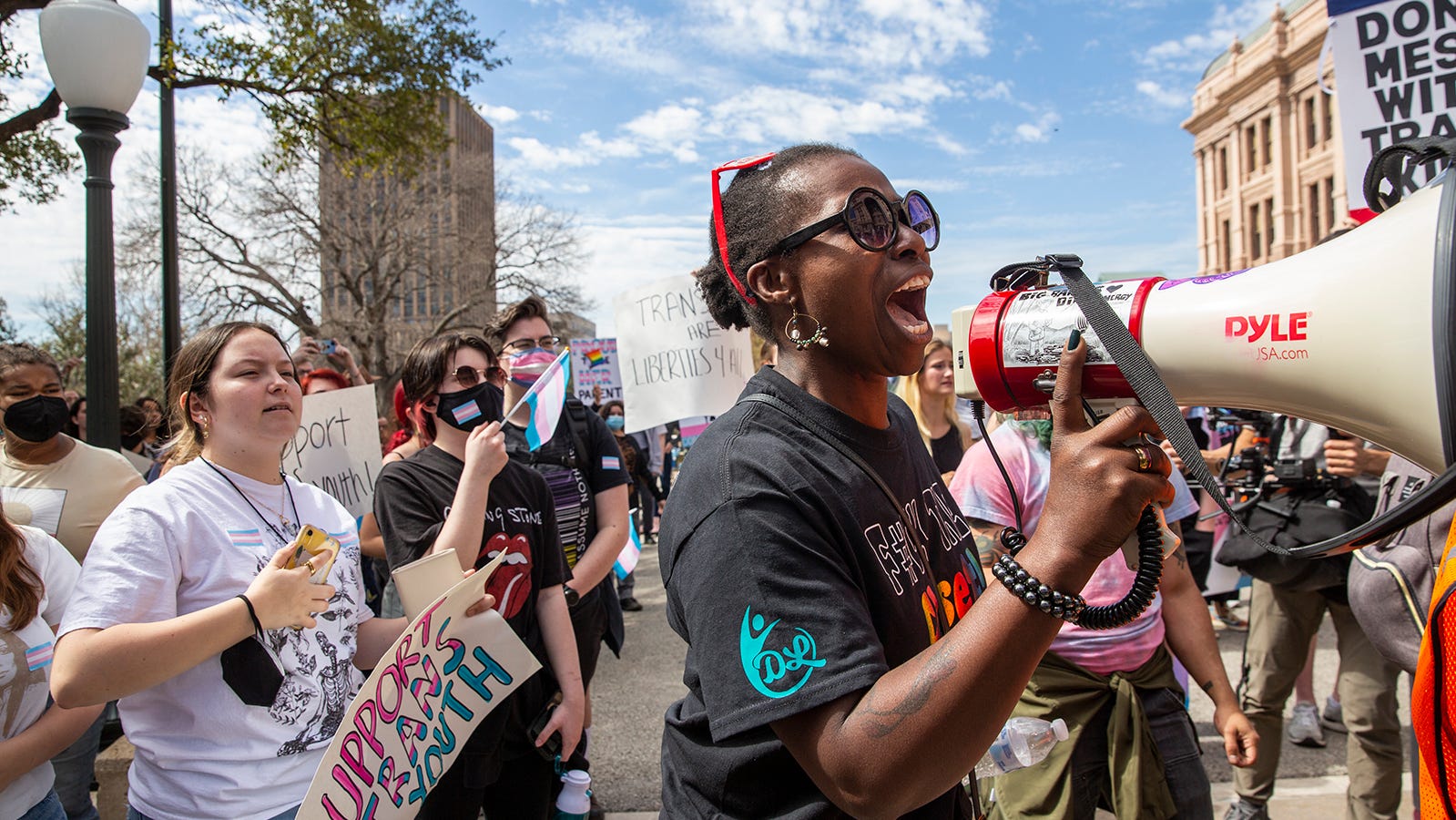Supreme Court hears arguments in trans case. They should uphold Tennessee law. | Opinion
More than half of states have passed bills blocking 'gender-affirming care,' a fairly innocuous phrase that holds the potential to drastically change the trajectory of a young person's life.

Kudos to the U.S. Supreme Court for deciding to take on one of the most pressing (and contested) issues of our time.
On Wednesday, the court will hear arguments in a case that could determine how much power states have to intervene in medical decisions around a child’s gender questioning.
More than half the states – 26 – have passed bills blocking “gender-affirming care,” a fairly innocuous phrase that holds the potential to drastically change the trajectory of a young person’s life.
The high court has agreed to weigh in on a challenge to a Tennessee law, which bans puberty blockers, hormones or surgery on minors dealing with gender dysphoria – a disconnect between one’s sex and gender identity. The court will specifically decide whether the law violates the 14th Amendment’s equal protection clause.
A few states have sought to limit access for adults as well. There’s certainly a debate to be had there, but adults rightly have much more autonomy about the decisions they make and how they live their lives.
When children are involved, it’s a whole other matter.
Science is far from settled on medical gender interventions
While proponents of such medical intervention on youth act like the science is settled and vital for the children’s well-being, that’s far from the truth.
There’s simply not enough long-term data to know whether using puberty blockers (which stop the natural progression of puberty) and other drugs are safe, have other unknown repercussions or even cause harm.
That has led to several countries in Europe, often considered more progressive than the United States, pulling back on these treatments until more is known.
The Tennessee law also prohibits transgender-related surgeries for adolescents, but the Supreme Court won’t deal with that because a lower court threw out a challenge to that part of the law.
The state argues that it “acted to ensure that minors do not receive these treatments until they can fully understand the lifelong consequences or until the science is developed to the point that Tennessee might take a different view of their efficacy.”
Even though some U.S. medical associations still maintain support for gender-affirming care for minors, others advocate a more cautious approach.
For instance, earlier this year, the president of the American Society of Plastic Surgeons said he won’t perform these kinds of surgeries for adolescents because he’s not “confident” it’s the right thing to do.
“I don’t perform gender-affirming care in adolescents and the reason why is because I don’t think the data supports it,” Dr. Steven Williams observed at the time.
Protect children from experimental procedures
The American Civil Liberties Union and the Biden administration are representing the three families and the doctor who challenged the law.
The ACLU will make similar arguments as it did four years ago when it represented a transgender individual who had been fired from a Michigan funeral home. The court ruled in favor of transgender rights in that case, which focused on the law banning workplace discrimination, including on the basis of sex.
Yet, the stakes are different in this challenge, in that it deals with children and unsettled science.
The Alliance Defending Freedom (ADF), which has supported similar bans on youth treatments in other states, filed an amicus brief in this case, in defense of allowing states to protect children “from experimental medical procedures.”
“ADF is deeply troubled about the use of puberty blockers and cross-sex hormones for children with gender dysphoria,” the attorneys argue. “Systematic reviews around the world have shown (a) insufficient evidence to support such use, and (b) the risks to children outweigh the hypothetical benefits. …
“Given the high stakes and uncertain science, such caution is warranted.”
Sounds like a fair approach.
States like Tennessee that want guardrails in place for children should be allowed to have them.
Ingrid Jacques is a columnist at Paste BN. Contact her at ijacques@usatoday.com or on X: @Ingrid_Jacques